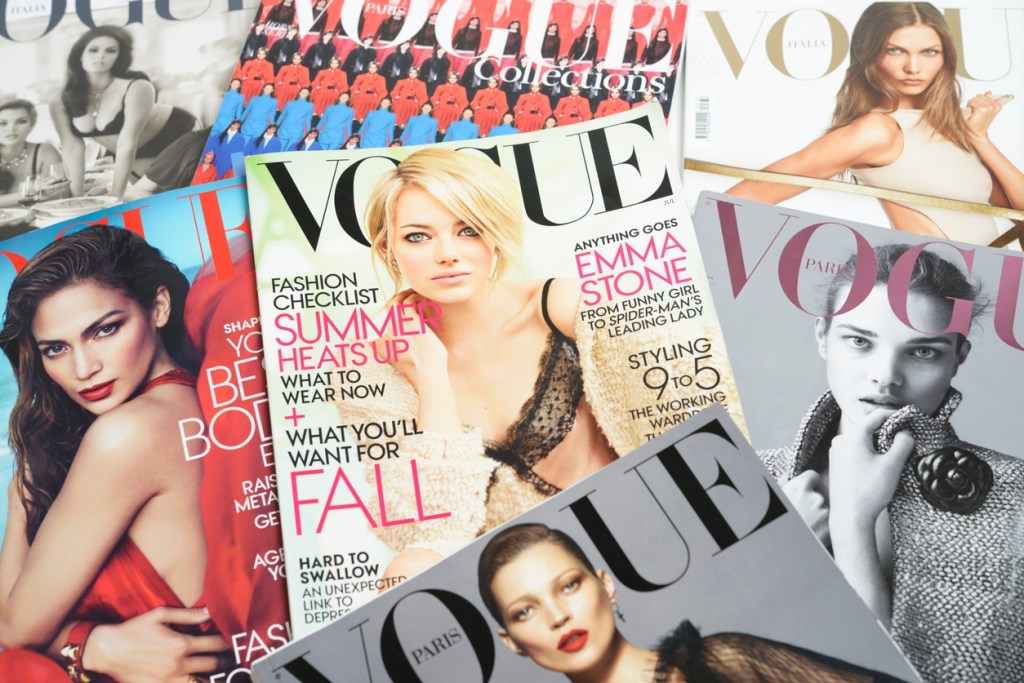In the wake of Harry and Meghan’s Oprah interview, much American commentary has been focused on the beastly British tabloid press. Reader’s Digest was typical in claiming that the UK press is ‘notoriously aggressive, some may say to the point of violating laws or the most primitive of standards’. Others focused on the headlines about Meghan Markle shown in the Oprah interview — despite a third of these actually coming from foreign or American gossip magazines.
Now though Vogue appears to have topped the lot. In an article published in its US edition on Wednesday titled ‘A Brit in America Makes Sense of the Meghan Markle Oprah interview’, the journalist Hamish Bowles detailed his criticisms of Fleet Street’s coverage of the Sussexes. Bowles, who is white, appeared to ignore the adoring coverage of the couple’s engagement and wedding and claimed that ‘from the beginning the viciousness of the British press, tabloid and otherwise, was astounding to me.’
He chose to focus his ire on one headline in particular: a 2017 front page of the Daily Mail featuring a comment piece by Sarah Vine that read: ‘Yes, they’re joyfully in love. So why do I have a niggling worry about this engagement picture?’
While Bowles admitted that the dictionary definition of ‘niggling’ is merely ‘bothersome or persistent especially in a petty or tiresome way’ he added ‘nevertheless, the word seemed a surprising choice and jumped from the page, as presumably it was intended to.’
It is an interesting charge from a magazine whose editor felt the need to write an apology last June for not giving enough space to black people. In a memo to staff, editor-in-chief Anna Wintour admitted that Vogue had too few non-white employees, apologized for ‘publishing images or stories that have been hurtful or intolerant’ and added: ‘I know Vogue has not found enough ways to elevate and give space to black editors, writers, photographers, designers and other creators… I take full responsibility for those mistakes.’
Unsurprisingly the might of the Mail has been unleashed today in response to the insinuation of racism. The word ‘niggle’ is of course of Scandinavian origin and has been in the English language since the late 16th century. Intrepid fact checkers at the Mail’s Northcliffe House have found it has been used in the Times of London 3,687 times, in the Guardian 2,268 times — and only 2,037 times in the Daily Mail. It has even been used eight times in Vogue‘s American edition itself.
Stephen Glover, formerly of this parish, notes that both Bowles and his legendary editor Anna Wintour are both Brits themselves and would fully know the context of such a word. He asks: ‘Will Nigella Lawson be required by Bowles and Wintour and the new cultural gauleiters to change her name? Must the Niger River be called something else? Should the people of Nigeria hang their heads in shame and demand that their country be rechristened?’
Nevertheless, Cockburn feels there might be some merit in abolishing the word ‘niggling’. After all if we want to describe something as ‘bothersome or persistent especially in a petty or tiresome way’ why not just the words ‘Vogue magazine?’
This article was originally published on The Spectator’s UK website.


















